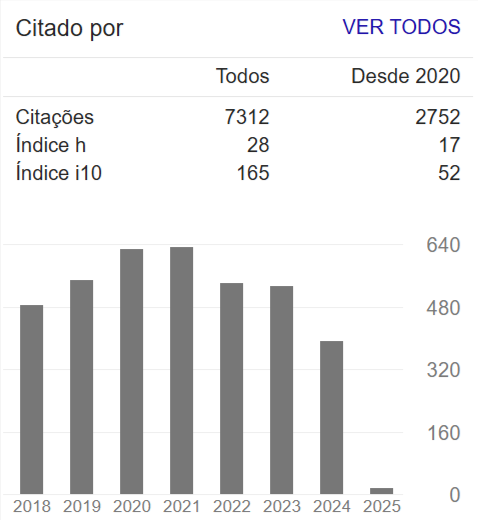UNDERGROUND FLUX STUDY IN A EXPERIMENTAL AREA IN PONTAL DO SUL -PR
Abstract
Coastal regions present a hydrogeology quite complex, both in quantitative and qualitative point of view. Are regions that present a correlation very close between unconfined aquifer surface, tidal variations, geology and climatic factors. These factors, isolated or associated, lead to a concern about their vulnerability of these aquifers. The aim of this work is to make a complete hydrogeology characterization of the area that was studied, the site in which the research was developed inside and close to the CEM-UFPR (The Federal University of Paraná Ocean Study Center), through piezometers installation, monitoring wells, which determining the flow underground and their interrelationships with climatic factors and tidal movement, and calculations of the hydrodynamic parameters and hydrochemical. From monitoring groundwater data level, rainfall index an compare them with data obtained from the tidal board of Hydrography Board an Navigation of Marine Brazil, Barra de Paranaguá station – Galheta channel verified that tidal influence behavior ground flux is almost null or virtually and not modified significantly the unconfined water level variations. Finally it was found that preferences of unconfined aqüifer discharge is preferably, toward mangrove channel than sea.

















